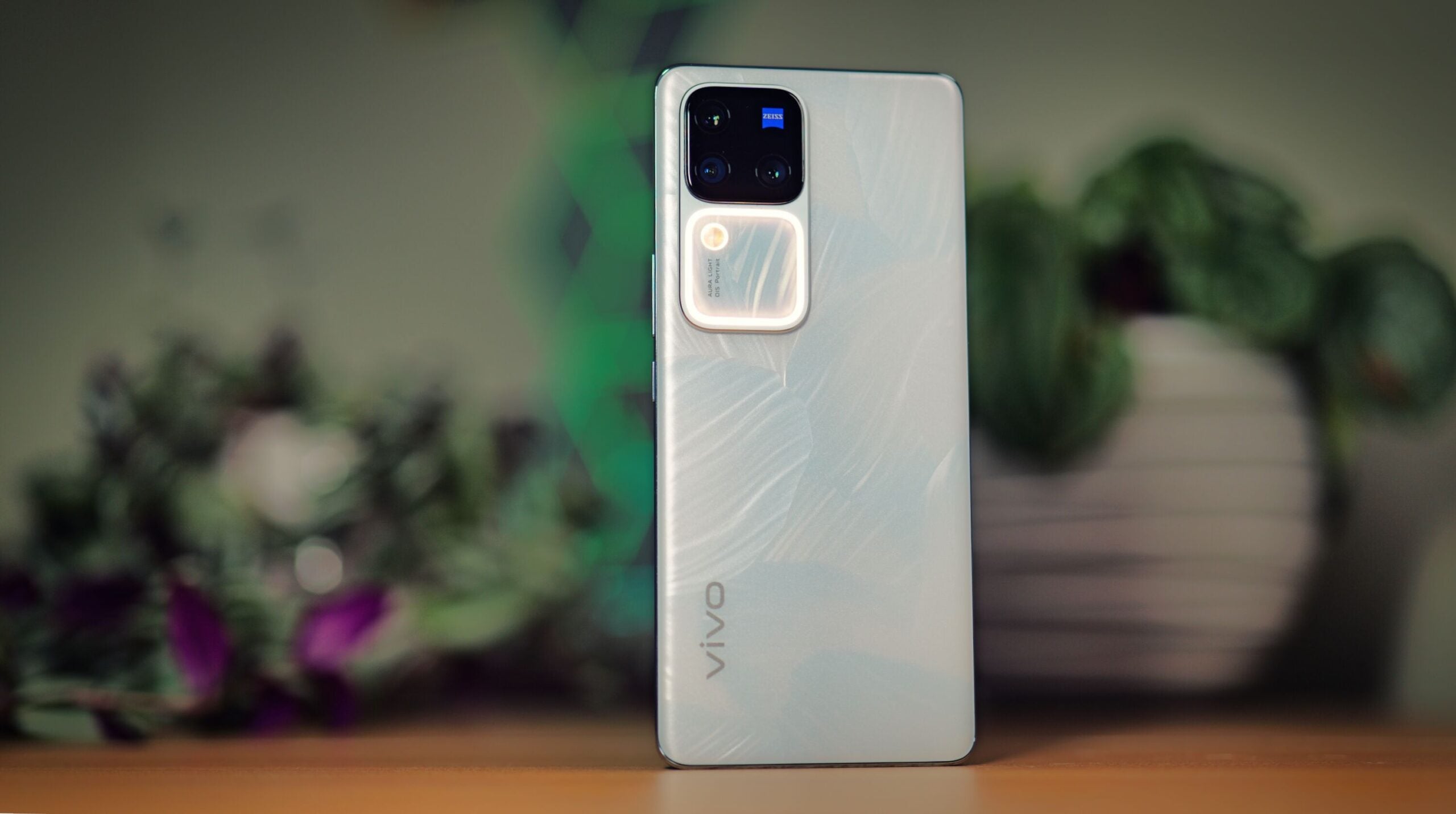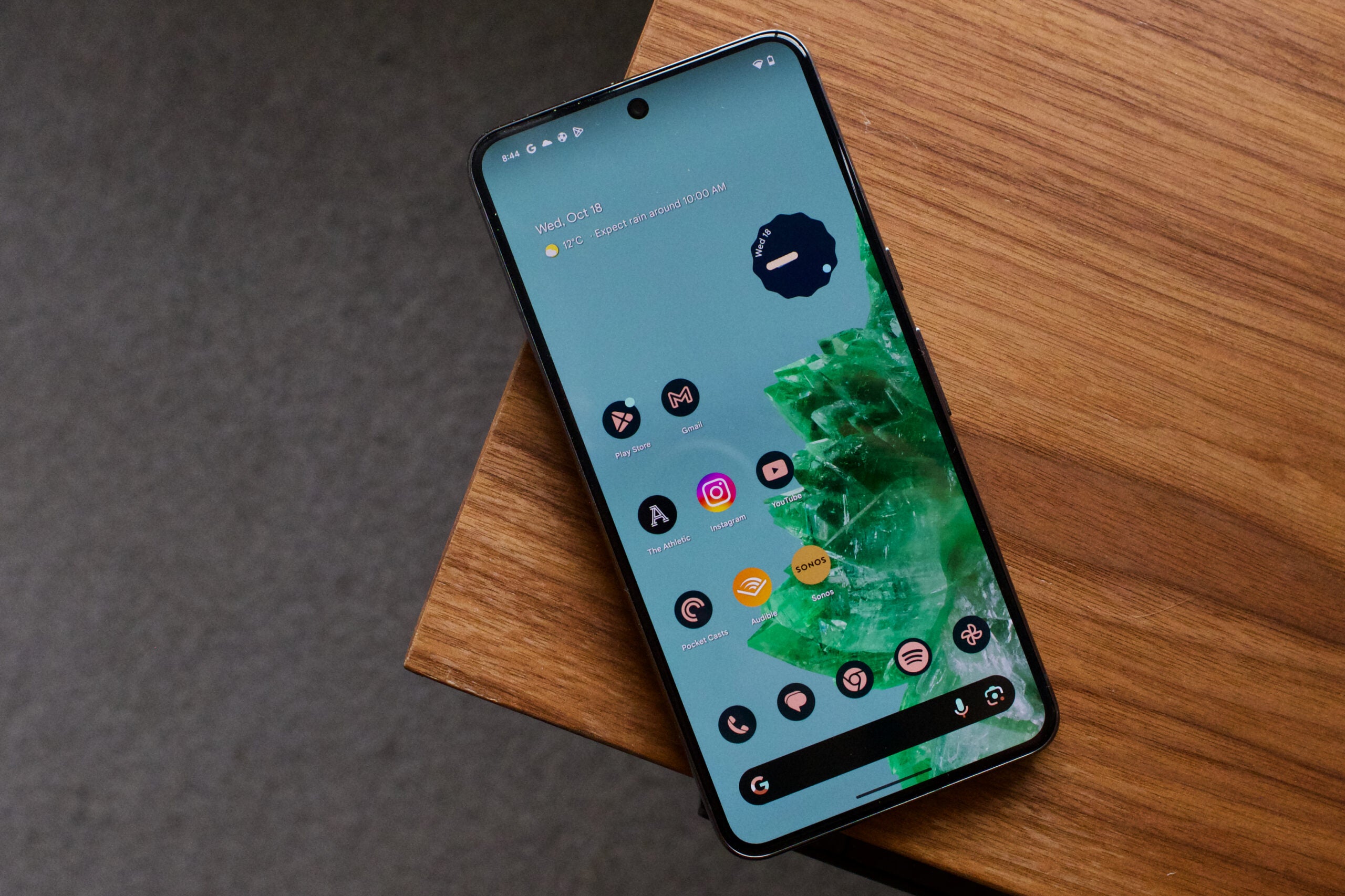Poco X5 Pro Review
The Poco X5 Pro is a solid mid-ranger with great performance, though it might leave you wanting more
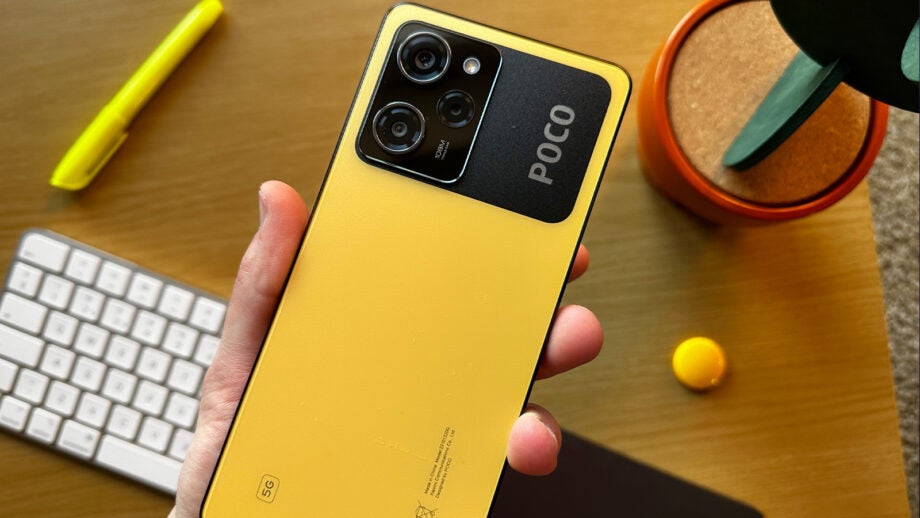

Verdict
The Poco X5 Pro is a solid mid-ranger with great performance, though it might leave you wanting more.
Pros
- Fully-capable 6.7-inch OLED display
- Surprisingly well-equipped camera
- Decent performance
Cons
- Cheap rear design
- MIUI software is very cluttered
- Unfriendly amount of bloatware
Availability
- UKRRP: £369
- USAunavailable
- EuropeRRP: €349
- Canadaunavailable
- Australiaunavailable
Key Features
- High-res camera systemFeaturing a triple camera on the rear, the X5 Pro goes all-in on resolution. The 108MP snapper takes charge, with an 8MP ultra-wide and 2MP macro camera to back it up.
- Supercharged batteryA whopping 5,000mAh battery makes the X5 Pro an easy all-day companion, and when things drop down to the red, you can juice it back up with 67W fast charging.
- Flaship-quality displayThe 6.7-inch AMOLED display packs the same bells and whistles you’d find from a flagship, with a 120Hz refresh rate, HDR10+ support, 900 nits of brightness and FHD+ resolution.
Introduction
While Poco focuses on the lower end of the smartphone market, its flagship devices end up in mid-ranger territory. And this year’s top-of-the-range model from Poco is the X5 Pro 5G – a smartphone that promises to up the specs from its predecessor.
Packing a whopping 108MP main camera sensor alongside a 5000mAh battery and flagship quality display, the X5 Pro stands to live up to the pro moniker. But how does it fare in the real world – especially, compared to the standard X5 model?
Design and screen
- Familiar flagship design
- Impressive 6.7-inch AMOLED display
- Built-in fingerprint scanner
Despite its affordable price tag, the design of the X5 Pro feels very familiar compared to other flagships. Poco’s offerings haven’t always looked so great in the past, so the brand’s taken an opportunity to refine things a little.
This year’s smartphone takes on a more rectangular shape, with squared-off edges. The shape of the phone feels a lot more premium, akin to the Galaxy S23 and iPhone 14, although a little slimmer. On the upper-left side of the rear, you’ll find the camera bump with all three of the sensors and a flash. Over on the right-hand side, you’ll find the brand’s signature seal of ownership.
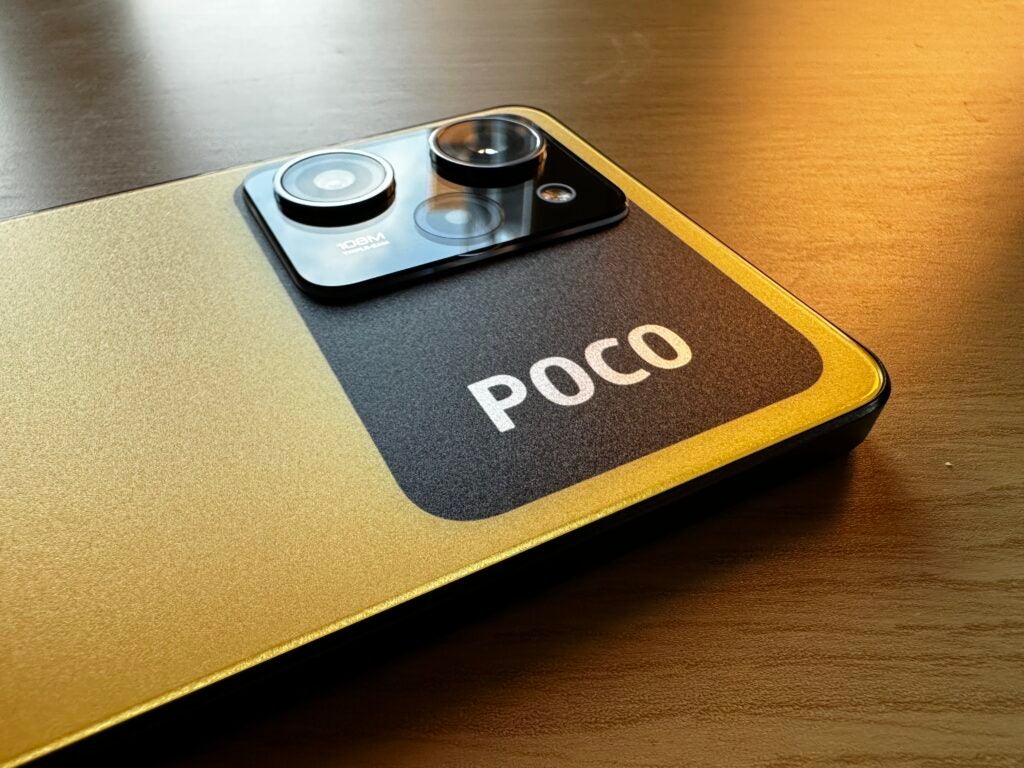
As on the standard Poco X5, this year, the Poco name is sideways in block capitals. It looks rather sleek – well, as sleek as a brand name can look on the back of a phone.
Poco’s tried something a little bit different with the rear of the X5 Pro, but unfortunately, it hasn’t quite worked. Rather than a traditional smooth panel, the X5 Pro features a textured plastic panel. It seems the brand attempted a more premium design but ended up with quite the opposite.
The plastic back feels, well… exactly like plastic. The texturing does nothing to take away from this, and the entire panel feels thin and flimsy. This year, the cheaper X5 looks better, with a metallic shine on its rear. Poco sent me its stand-out yellow colour option, but it’s available in black and blue as well.
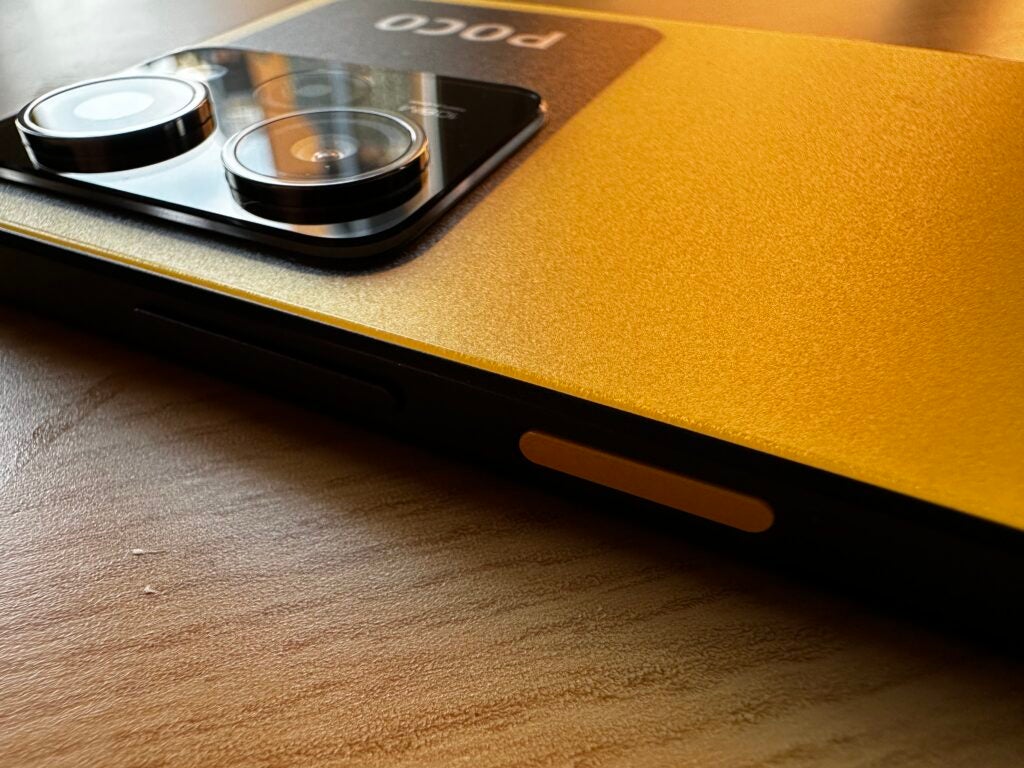
Moving over to the sides of the device, things once again feel very familiar. There’s nothing at all on the left side of the smartphone. Down at the bottom is a mic, USB-C charging port, speaker grill, and a nano SIM card tray (which is quite hard to get out using an ejector tool).
Over on the right is the volume rocker and power button with a fingerprint sensor built-in. A nice touch here is the coloured power button – it matches the back colour of the device, just as the old Pixels used to. And up top, you’ll find a 3.5mm headphone jack, a secondary speaker grill, and an IR blaster.
Turn the device over and you’re greeted by a 6.7-inch AMOLED panel complete with FHD+ resolution.
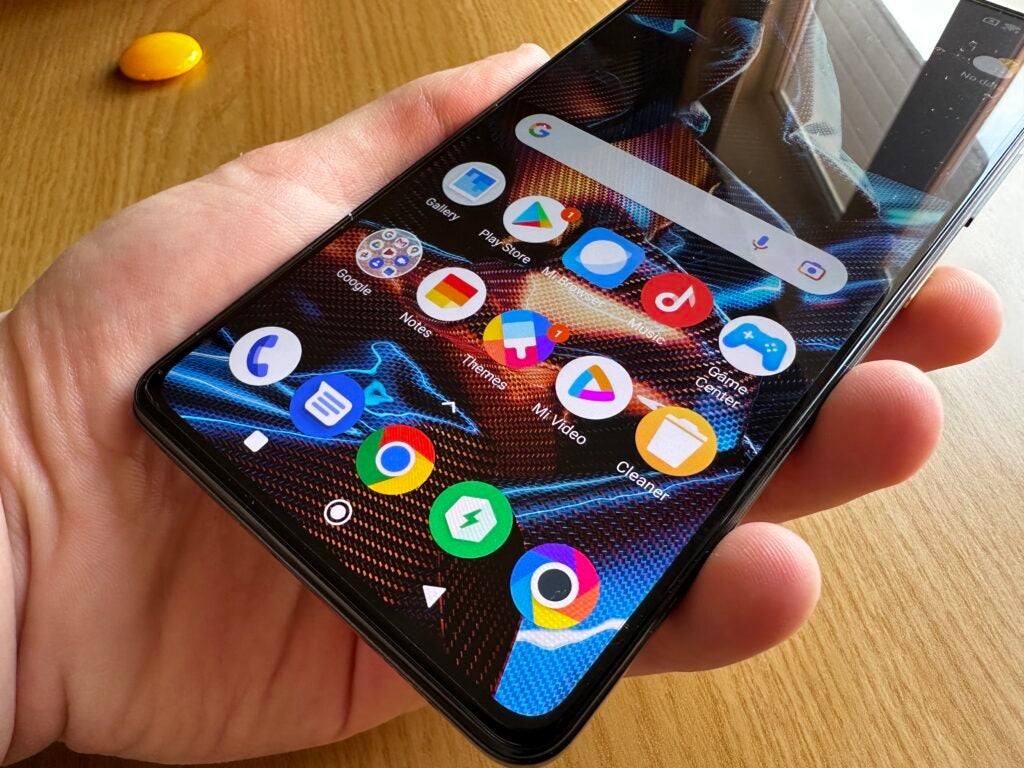
It’s a display that wouldn’t look amiss from flagships on the market. While the resolution isn’t quite up to that standard, you will find a 120Hz refresh rate instead. Expect buttery smooth navigation on the device, though don’t expect it to drop down to 1Hz like premium LTPO-enabled smartphones.
Curiously, the X5 Pro’s display is not quite as bright as that of the standard X5. The more premium device only cranks up to 900 nits at maximum when watching HDR content, a firm 300 nits lower than its cheaper counterpart. It’s a very odd decision.
Brightness aside, it meets the HDR standards of both HDR10+ and Dolby Vision. You can rest assured you’ll get bright, vibrant pictures with true-to-life colours while watching content from the likes of Netflix.
Sure, there are more impressive displays out there, but the X5 Pro comes out guns blazing for its price range. The Dolby Vision support, in particular, is a huge win for this smartphone. Though it would be nice to watch films in 4K…
Camera
- Super high resolution 108MP main snapper
- Dedicated night mode
- 4K video capabilities
As an option at the cheaper end of the market, Poco phones aren’t necessarily known for their cameras. In fact, it’s an area that Poco in particular seems to struggle. This year’s solution seems to be throwing some extra megapixels at the main snapper in an attempt to scale things up a bit.
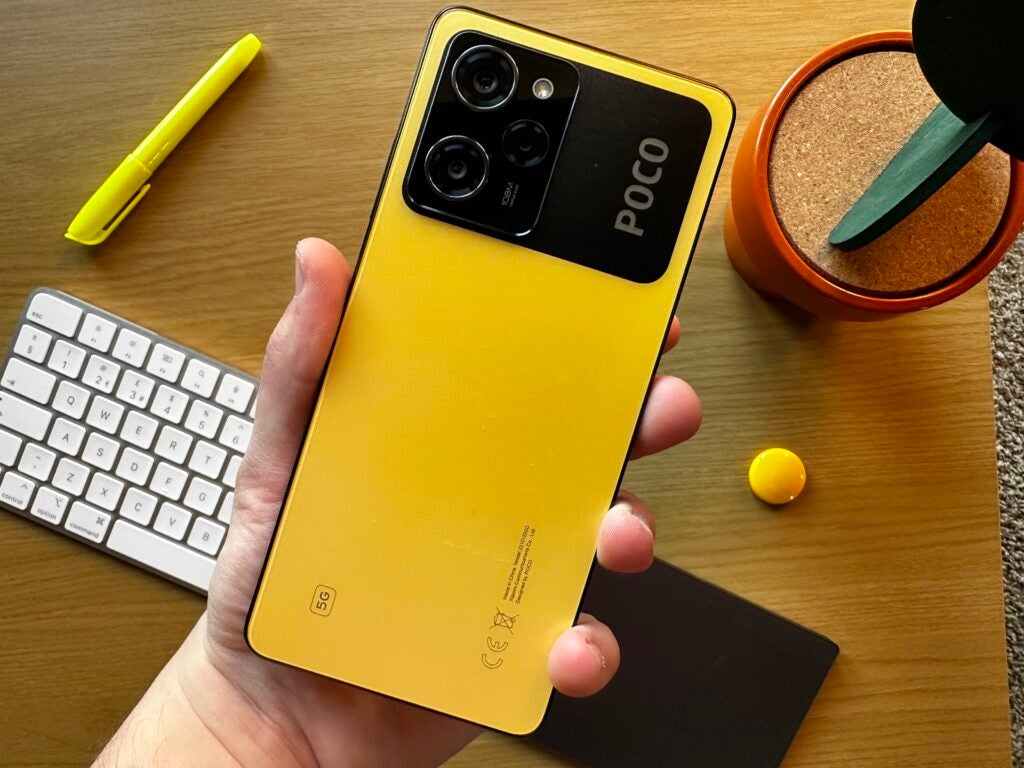
Images taken with the main snapper are crisp, and boast vibrant colours. Pictures are bright too, thanks to the larger 1/1.52-inch sensor and an f/1.9 aperture. The main snapper lets a lot of light in, capturing the type of picture you’d expect from a more expensive mid-ranger, or even a cheap flagship.

However, things aren’t quite so rosy when you look a little closer. Zoom into an image (or simply get a little closer) and detail seems to melt away. Sharpness seems to fall apart quite quickly, resulting in muddied and somewhat blurry images. With a 108MP main sensor, this isn’t what I’d expect.
These extra megapixels should be capturing more detail, but it seems that AI processing and pixel binning tech is favouring colour capture rather than image detail. I’ve seen a similar thing on the standard X5. And while that phone uses a lower resolution sensor, it suggests that a lot of this is down to the software.
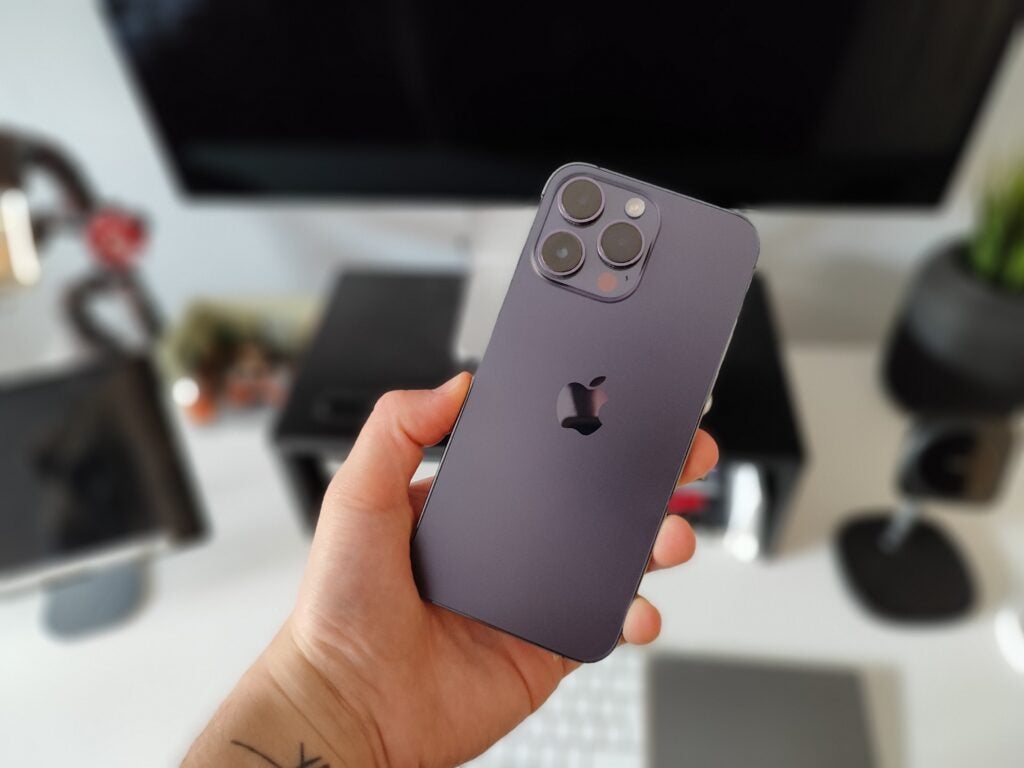
The ultra-wide sensor works well, offering a 120-degree viewing angle that captures a wide image without the classic fish-eye effect distortion. Images are lower quality than those from the main snapper, as to be expected from a lower 8MP sensor, however, this isn’t necessarily noticeable at first glance.
The lenses can even hold their own when using a digital 2x crop. You can definitely notice a hit in image quality, just like you can when zooming in on photos taken from a regular zoom, but the X5 Pro manages to avoid things becoming too muddy – something which cannot be said for the standard X5.

While the macro camera is a nice idea, it doesn’t produce usable photos in most scenarios. Things are simply far too blurry – there’s not enough light captured by the 2MP sensor Poco uses – and lacks autofocus too.
Night mode is a nice idea, but isn’t a feature I’d find myself using on the Poco. Just like the standard X5, it certainly makes images brighter (if not a little too warm) but lacks detail due to the sensors Poco uses. The X5 Pro’s shots are better than those from cheaper model thanks to the larger sensors, but they’re still not great. You’re more likely to capture a better photo using the flash.
As for other camera features, you’ll find a Pro mode, document scanner, short videos, panoramas, Vlog mode, slow motion, time-lapse, and long exposure. Combining some snazzy features with decent sensors, the X5 Pro isn’t a bad camera option for a low price point.
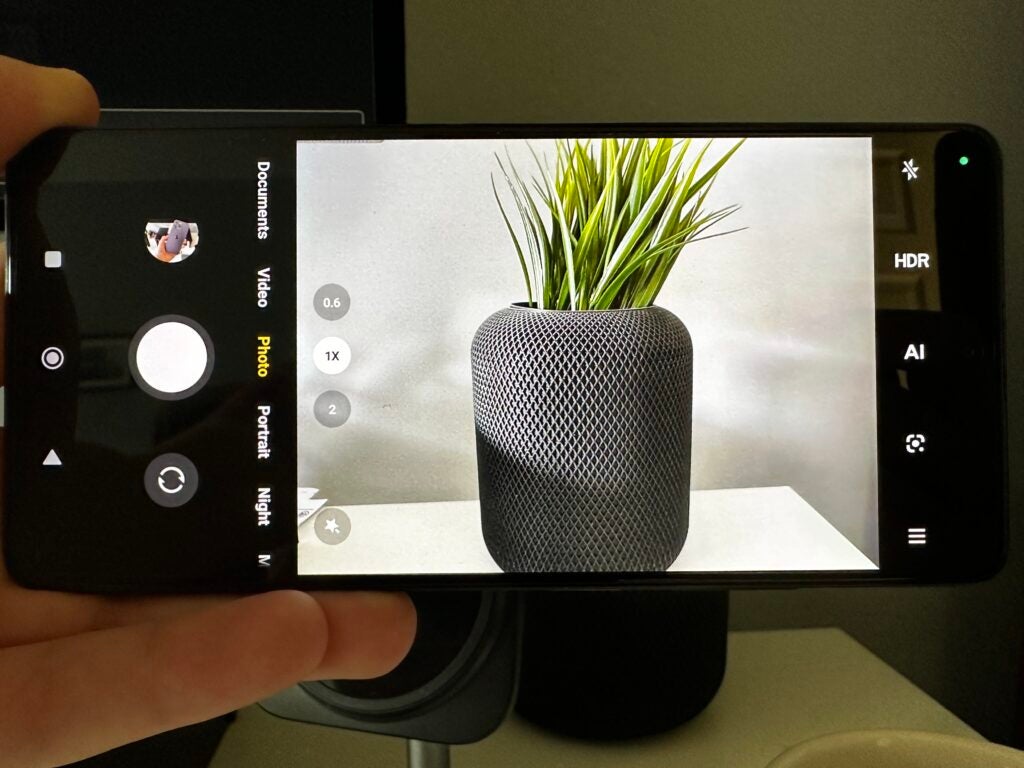
Performance
- Mid-range Snapdragon 778G chipset
- Struggles to maintain performance under pressure
- Sub-par software experience
Within the X5 Pro, you’ll find the mid-range Snapdragon 778G chipset. This processor is a step up from the one used in the standard X5, but rather unsurprisingly, it can’t match the performance of more premium options such as the Snapdragon 8 Gen 2.
That said, the X5 Pro can handle most of the tasks you throw at it. Unlike the standard X5, you’d be hard-pressed to find any stuttering in normal, everyday use. Even when gaming, the smartphone can hold its own. In our testing, it rarely missed a frame playing more complex 3D games like Asphalt 9. And if the smartphone ever did stutter, it did so for nanoseconds rather than full seconds.
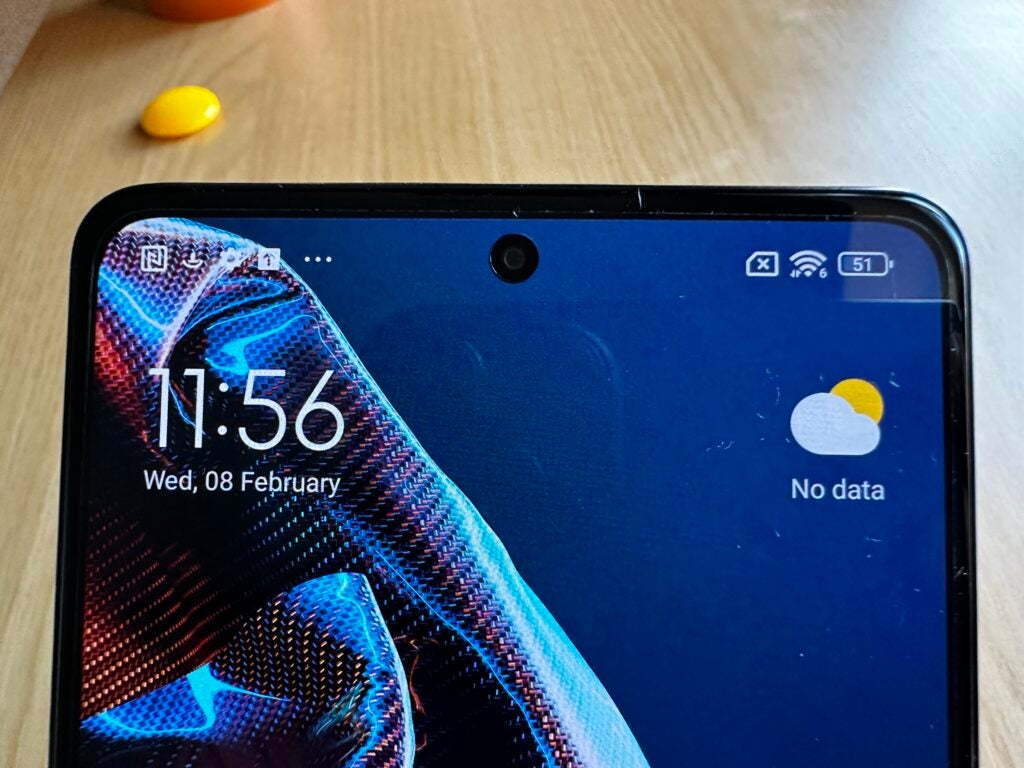
What’s the problem then? There isn’t one, particularly. The X5 Pro’s performance is pretty solid when you’re using the device for everyday tasks. However, when you try to multitask, you can feel things slowing down on the phone. It’s something you can work around, for sure, but you’re left wanting more.
Running a Geekbench benchmark on the phone, I got a 786 single-core score, and a 2988 multi-core score. This is miles ahead of the standard X5, which couldn’t break 700 on the single-core, and only just passed 2000 on the multi-core. Compared to a similarly priced Nothing Phone 1, things are pretty evenly matched. In fact, they’re almost like-for-like, since they’re using the same chipset inside.
Poco’s software experience continues to disappoint, even when running the latest MIUI 14. I wasn’t too happy with MIUI 13 on the standard X5, and the updated software isn’t much better.
Still based on Android 12, the custom skin really complicates the Android experience. It’s clunky and unorganised, with typical actions buried deep beneath multiple buttons and swipes. There’s also a ton of bloatware pre-installed on the device – everything from Booking.com to Netflix, and even some mobile games! It’s not what you want on a new phone out of the box, regardless of what you paid for it.
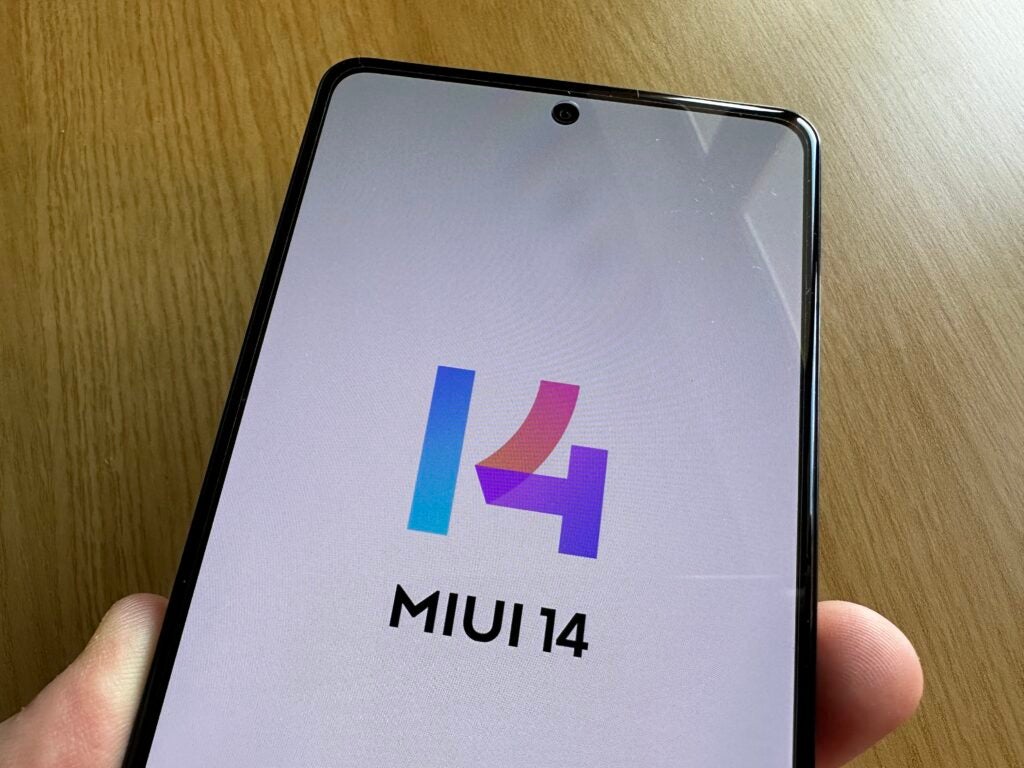
Thanks to dedicated speakers at both the top and bottom of the device, the X5 Pro can blast out some pretty decent sound. Sound has some level of depth to it, rather than sounding tinny and constrained, and there’s Dolby Atmos support when using headphones. While the X5 Pro’s spatial audio certainly isn’t anything to write home about, it can mimic the surround sound effect to some degree.
Connectivity-wise, the X5 packs everything you’d expect from an affordable smartphone. It boasts 5G for the latest in mobile connectivity. There’s support for two SIM cards too, which comes in handy for travel. You’ll also find Wi-Fi, Bluetooth 5.2, and NFC for payments.
Battery life
- Easily lasts a full day on a single charge
- Relatively fast charging speeds
As I briefly mentioned in the introduction, the X5 Pro has managed to cram in a 5000mAh battery. It’s the same size as the battery in the standard X5, and lasts about the same amount of time as shown in testing.
After an hour of watching Netflix, the X5 Pro lost 7% of its charge. Half an hour of light gaming burned through 3%, while half an hour of intense gaming burnt 7%. It’s fairly typical performance that’ll easily see you through a day of normal use, though the power efficiency isn’t quite up to the same standard as flagships like the OnePlus 11 that can provide two days of use with the same 5,000mAh cell.
Charging is pretty fast on the X5 Pro – in fact, Poco likes to call it “turbocharging”. It’s 67W fast charging via a cable, which is pretty impressive for a phone at this price point. I couldn’t take advantage of the charging, being supplied with a charger for mainland Europe, but those that buy the phone in the UK can look forward to a UK plug.
Thankfully I found a similarly matched brick to juice up the X5 Pro. It took just 24 minutes to charge from 0% to 50%, and just over one hour to go all the way. Being able to juice all the way up in an hour is seriously impressive, beating even the Samsung Galaxy S23 Ultra. And if you need a quick boost before you head out, Poco can handle that too. It’s a huge improvement from the regular X5, charging to full twice as quickly.
Latest deals

The Poco X5 Pro 5G is an absolute Prime Day bargain
The budget-friendly POCO X5 Pro 5G is even more of a bargain following a 24% price slash, taking the price down to a more affordable £279.
- Amazon
- Save 24%
- Now £279
Should you buy it?
You want a solid performer without the associated price: While it’s not the Snapdragon 8 Gen 2, the Snapdragon 778G is capable for everyday use and light gaming.
You want the best software experience: The Poco X5 Pro ticks a lot of boxes, but its main weakness is the MIUI 14 Android skin with an awkward UI and plenty of bloatware.
Final Thoughts
Poco’s X5 Pro is a solid mid-range Android smartphone. It matches the performance of other devices at this price, and outperforms them in areas like display and charging. While Poco’s camera lacks detail, its shots are brighter than those from most other affordable Android phones. To be honest, the biggest letdown for most people will likely be the MIUI software.
If you’re looking for reliable performance around the £350 mark, then the Poco X5 Pro is an excellent choice.
However, for me, it comes down to software. I’d pick the Nothing Phone 1 over the X5 Pro solely for its skin of Android. Is that a little harsh? Maybe. But the way you interact with your phone 24/7 is a pretty vital factor.
At the end of the day, you’re unlikely to be disappointed with the Poco X5 Pro as a mid-range smartphone. It’s ramped up from last year, and holds its own during everyday use and more challenging tasks.
How we test
We test every mobile phone we review thoroughly. We use industry-standard tests to compare features properly and we use the phone as our main device over the review period. We’ll always tell you what we find and we never, ever, accept money to review a product.
Tested as a main phone
Taken plenty of photos in varying environments
Tested with real-world and industry-standard benchmarks


